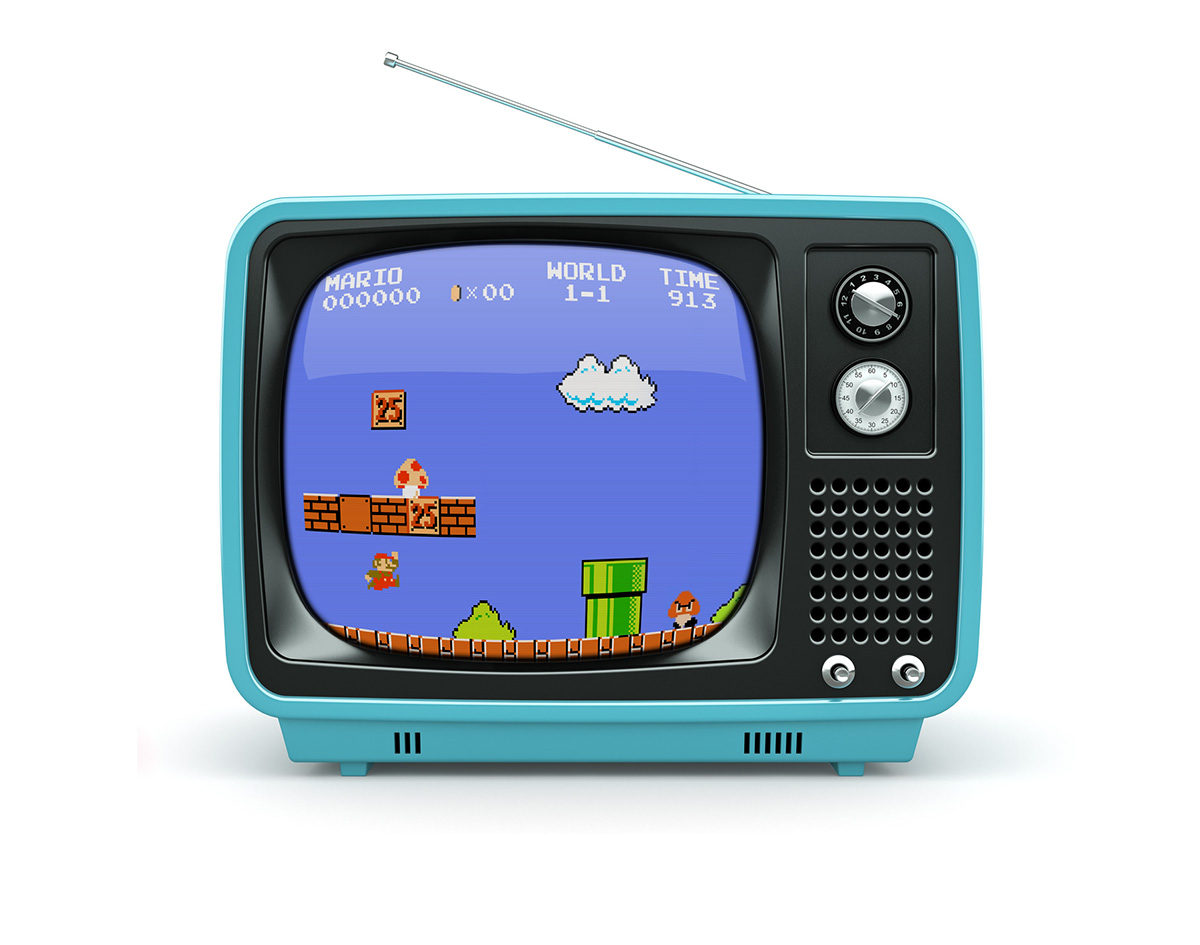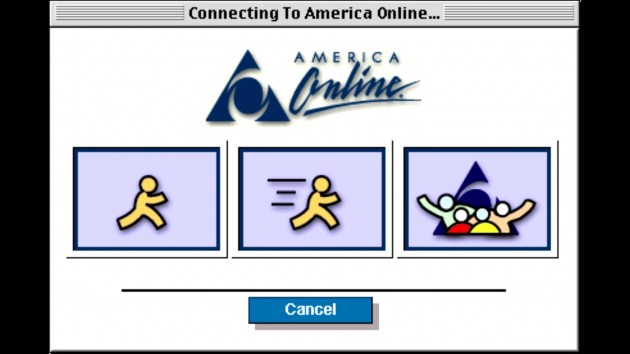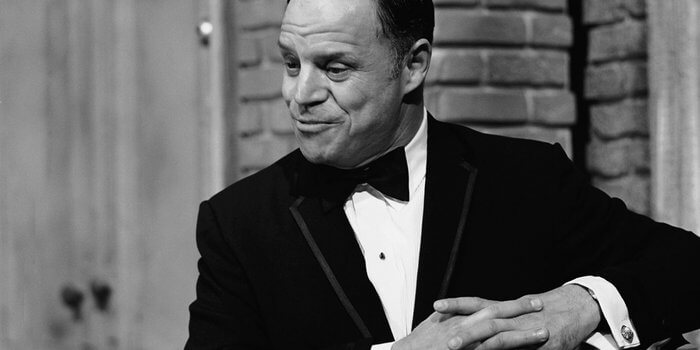For whatever reason, it seems like every generation thinks the generation before them had it so much better. In the 1970s, pop culture was glutted with movies and TV shows like Grease and Happy Days that posited the 1950s as an American golden age … only to have programs like That ‘70s Show come along 20 years later to declare the disco era the TRULY exceptional period in U.S. culture. The same way 1980s retro revivalism was big business in the 2000s, 1990s nostalgia is all the rage right now, with scores of millennials and Gen Z tykes reflecting on the (first) Clinton years as the virtual heyday of pop culture, fashion, media, entertainment and, well, simply being alive.
Unfortunately, today’s college frosh, high schoolers and junior high students – whom either were still in diapers or not even eukaryotes when 2000 rolled around – might be looking at the ‘90s through glasses that are far too rosy. Yes, the shows on Nickelodeon at the time were great and it was fun playing Donkey Kong Country, but what about the non-pop cultural dressings of the era? Today’s ‘90s-obsessed kids completely overlook the hard truths of the Grunge-and-AOL-epoch, and they especially discount just how much better their own contemporary culture is to their romanticized fantasies about what they think the 1990s were like. As a matter of fact, not only were the 1990s nowhere near as great as today’s gilded youth imagine, compared to where we are collectively right now in terms of technology, societal well-being and consumer options, the ‘90s flat out sucked.
The Gen X years weren’t all Ren & Stimpy and Squeezit, you know. Indeed, there are at least nine reasons I can think of as to why not only are the 2010s vastly superior to the 1990s, but why the decade held in such high esteem by so many millennials really isn’t worth vaunting whatsoever…
Reason Number One:
Most of the decade was spent gripped in a global economic meltdown…
Although most of us reflect on the 1990s as a time of great domestic prosperity, we tend to overlook just how horrific the total global economic picture was during the decade. Yes, the U.S. did end the ‘90s with nearly double its gross domestic product (this, despite 1990-1992 representing a mini depression no one ever talks about, for some reason), but pretty much everywhere else, markets were in the crapper. By 1993, nearly three million people in the U.K. were unemployed, and the economy wouldn’t fully rebound for another four years. Huge economic woes also plagued the Nordic countries, while Japan found itself mired in a market slump so deep, the entirety of the 1990s became known as the country’s “lost decade.” And then there were the severe banking crises that almost pushed countries like India and Mexico into revolution. And representing the proverbial cherry atop the turd sundae, the Pacific Rim crash of 1997 absolutely obliterated the economies of Thailand, Indonesia and the Philippines, which in turn kick started a global market panic with Russia, Brazil and Argentina all devaluing their currency (which would eventually lead to the Great Recession of 2008.) So yeah, as long as you lived in a predominantly English-speaking country after the 1996 Summer Olympics, things were probably pretty peachy when it came to national financial matters; if you lived virtually anywhere else, however, you were pretty much guaranteed to be living in a world of economic misery.
Reason Number Two:
…and domestically, everybody was WAY poorer…
As of 2015, the average U.S. household median income was about $53,00o a year, while the median individual income, before taxes, was about $26,000. The median household income in 1990, while moderately lower at about $50,000 a year, may not be worth quibbling about, but the median personal income – at $20,000 a year – should definitely give you some pause. Indeed, the outlook is even worse if you were a minority or woman: the median yearly income for black men was barely $12,000, for white women barely $10,000 and for black women, the mind-breakingly low sum of just $8,000 … and remember, this is all pre-taxes, too. If you are wondering how pay back then could have been so astronomically small, a large part of it had to do with the federal minimum wage requirements. Yes, today’s $7.25 an hour minimum is indeed hard to live on, but it’s still a vast improvement over the minimum wage in place at the beginning of the 1990s … just $3.80 an hour.

Reason Number Three:
…primarily, because inflation was MUCH worse.
For those of you who never had to take economics, the easiest way to explain “inflation” as a concept is basically “how much do you have to pay this month to get the same amount of stuff as you bought last month?” The 2015 inflation rate is insanely low, averaging out to a general 0.1 percent increase in consumer good prices. Across the board, consumer goods – that’s everything from groceries and household items to electronics and automobiles – were far more prone to wild price increases in the 1990s. At its decade-low point in 1998, the inflation rate was still 1.4 percent, while the decade-high in 1990 jumped all the way up to 6.3 percent. Although it may be tempting to look back at 1990 and yearn for its 89-cents-a-pound hamburger meat and $1.23-a-gallon-gasoline, once you factor in the cost of goods and services in proportion to the much, much lower wages, it becomes pretty clear just how much more expensive it was to simply eat, keep your electricity on, make car payments and enjoy a night at the movies. Which brings us to another thing we seem to have forgotten about the 1990s…

Reason Number Four:
Consumer access to pretty much everything was extraordinarily limited…
Thanks to the World Wide Web, you can get pretty much anything you want – be it first-run movies, out-of-print books, eBay collectibles, or even black tar heroin, if you know where to look – with a couple of mouse clicks. Before Netflix and Amazon, however, if you wanted to buy something, you were pretty much restricted to whatever was on sale within driving distance (and if you didn’t have a car, whatever stores you could walk to.) If they didn’t have that Montreal Canadiens jersey at your nearest mall, you were S.O.L – since you couldn’t Google anything, you just had to keep calling stores until you found one that did, and if it was after hours? Too bad, so sad. If you wanted some sort of obscure LP and the local record shop didn’t carry it, you’d have to order it by mail – that is, if you could even get in touch with someone selling it – and then wait weeks and weeks before you could listen to it. Downloading games? Forget it, pal … unless Blockbuster had it in stock, there was no way in hell you’d be able to play it. Hell, you even had to mail payments to your utility providers and – as mind-breakingly improbable as it sounds – there were even some national retailers that didn’t accept credit cards as a form of payment. Simply put, getting your hands on anything – be it salad dressing, sports cars or vintage Slinkies – was remarkably more difficult, time-consuming and headache-inducing in the 1990s than it is today.
Reason Number Five:
…as were telecommunications…
Yeah, that’s right kids, we didn’t have smart phones back then. In fact, we barely had cell phones, for that matter, and even then, you’d have to pay hundreds of dollars for what were effectively nothing more than glorified walkie-talkies you might be able to play Snake on, if you were lucky. “Texting” was not even close to being a thing, so if you wanted to talk about trifling stupid stuff with a friend who lives in a different time zone, you had to pay the phone company a ton of extra money to call them “collect” over a landline. Emails? Forget it, you either sent them snail mail (which took not just days, but weeks to receive correspondence) or you faxed them … and this was back in the day when not only were the fax machines utterly gigantic and obscenely expensive, they were also ear-piercingly loud and took FOREVER to forward a two-sentence message. Nowadays, it takes mere seconds to get in touch with our loved ones, no matter where they are in the world. Back in the “glory days” of the 1990s, however? Hope you like playing the waiting – and worrying – game, because it was going to be a long time before the decade’s lackluster communication technologies connected you to them.

Reason Number Six:
… and especially media.
Although the ‘90s are often remembered as a glorious epoch for film, music, television and video games, the frank reality was that you didn’t actually have that many opportunities to consume them. There were no DVRs, so unless you recorded something on a crappy, fuzzy VCR that always messed up the sound, if you didn’t see something when it was aired on television, there was a strong chance you never would have been able to see it again. Speaking of, unless you had one of those humongous satellite dishes in your backyard, you only had maybe 40 or 50 non-digital cable channels to work with, compared to the thousands available today. “Downloading” songs was still technologically impossible, so if you wanted to hear a tune, you either had to keep calling the radio station until they played it or you broke down and went to Tower Records and paid $21.99 for a copy of Hootie and the Blowfish’s latest CD. So, basically, the only type of entertainment (and really, information, for that matter) afforded to you was whatever was zoomed into your cable box, playing at the local movie house or on sale at KMart. And if you didn’t like whatever scant, mass-marketed stuff was being shoved down your throat? Sorry, but those were the only options available to you.

Reason Number Seven:
The world was a significantly more violent place.
Despite all of the fearmongering you may hear on the nightly news or read about on Facebook, the hard data doesn’t lie: the world, and U.S. society in particular, is a dramatically safer place than it was in the 1990s. In 2013, about 368 out of every 100,000 people in the U.S. had some kind of violent crime perpetrated against them. In 1995, the rate was 684 out of 100,000 and in 1990 it was 731 – meaning, the nation’s violent crime rate has plummeted by half over the last two and a half decades. The homicide rate has fallen from 9.4 out of every 100,000 people in 1990 to 4.5 people today; elsewhere, the rate of rape has fallen from 41.2 to 25.2 out of 100,000, the rate of aggravated assault has dropped from 424.1 to 229 out of 100,000 and even the rate of car break-ins has plummeted from 3,194 to 1,899 out of every 100,000 people. And on the global level? While there is indeed a lot of ghoulish and gruesome stuff happening over in the Middle East, Africa and Latin America, it’s pretty hard to argue against the 2010s NOT being a generally safer point in history than the 1990s. After all, we are talking about the decade that gave us the Rwandan genocide, two Congolese and Chechen wars apiece, attempted ethnic cleansing in the Balkans, the overthrow of the Pakistani government and civil wars in Somalia, Croatia, Algeria, Djibouti, Sierra Leone, Tajikistan, Afghanistan, Burundi, Iraq, Yemen and Ethiopia, aren’t we?

Reason Number Eight:
Health care was an absolute mess.
Say what you will about the state of medical care in the U.S. today, no matter how you slice it, things were much worse in the 1990s. For one thing, 16 percent of the nation – a good 40-million plus people – had no form of health insurance, public or private, to speak of. On top of that, general health care prices actually rose at double the rate of inflation, and as we learned earlier, inflation was pretty damn bad back then. If you had HIV, the mortality rate was 60 percent, the average U.S. life expectancy was 75.3 and a month’s supply of anti-depressants cost $60 a bottle in 1994 money. Today? Only 11 percent of the country is sans medical coverage, the rate of health care inflation is easily half that of the 1990s’ lowest point (and about one-fifth what it was at the decade’s highest point), the rate of HIV deaths has fallen to 2.2 per 100,000 people, the life expectancy has increased to 79.3 and SSRIs like Prozac literally cost only a fraction what they did during the heyday of the Super Nintendo. Factor in all of the incredible breakthroughs in trauma care, microbiology, pharmaceuticals and medical tech in general that have transpired over the last 25 years and you’d have to be a total idiot to even consider trading in 2016’s rudimentary health care services for even the most cutting-edge treatments of 1996.

Reason Number Nine:
There was no Internet around to save us.
There is no way I can overstate just how much the World Wide Web has changed civilization. Today, we use the Internet for everything: it holds all of our documents at work, it give us access to our banking data in real time, it helps guides us through our daily commute and we’re probably less than a decade away from living in a global society where mobile translator apps completely eliminate the social barriers of language, written or spoken. For the bulk of the 1990s, the majority of Americans didn’t have access to any of that, and if they did, it was woefully simplified, painfully slow and prone to so many cyber-security perils that putting your credit card information online was about as risky as streaking through downtown Chernobyl. Can you possibly imagine doing a research paper without Wikipedia around as that crucial starting point for your academic sojourning? How in the world were you supposed to find a job without being able to check out Craigslist or Monster? For crying aloud, without Facebook or Twitter, how were you even supposed to hold tight social bonds with friends and acquaintances who lived across the country or abroad? For all of its fault, flaws and foibles, no force in history has granted humanity such a drastic increase in knowledge as the Internet. Yes, it does have a lot of clickbait and trolls and rampant stupidity on YouTube, but it also allows us to know what’s happening in the world as it happens without having to wait for the details to be filtered through the lens of Big Media. Thanks to forums and content aggregators and social media platforms, not only can we connect with like minded people across the globe, we now have access to literally billions of pieces of media – including movies, TV shows, journals, books, games, magazine articles, blog screeds, home movies and historical documents – that would have been impossible to know about just 20 years ago. And it has proven just as big a boon to content producers as content consumers: you can literally upload your own videos or write a story and within seconds, somebody 5,000 miles away can check out what you made. That, and as a financial instrument, it has opened up opportunities that would have been completely impossible in 1993, when stuff like etsy, GoFundMe and even eBay were practically self-entrepreneurial science fiction. Yes, you can wax nostalgic about Nirvana and Dunkaroos and the first couple of seasons of Rugrats, but calling the ‘90s a “superior” time to be alive than right now means eliminating the greatest technological – and perhaps even social – advent in human history.

Pop Qwiz popcorn and Gak and Dexter’s Laboratory were indeed great, but I’d much rather live in a society with cheap and reliable GPS traffic navigation tools, safe online banking and the ability to video conference with people halfway across the planet (for free!) than go back to a time when you had to rewind movies to view them more than once, there was no way to “autopay” your monthly bills and the closest thing we had to YouTube were reruns of America’s Funniest Home Videos hosted by the dad from Full House. And if that sounds more appealing than living in the technological marvel land that is 2016 … well, it’s pretty obvious you never actually experienced the 1990s yourself.







Wow, whoever wrote this should be sterilized before it gets a chance to reproduce this level of terminal stupidity. He / She is flat-out wrong in all the places the vapid assertions aren’t asinine, childish, and insightful as a fortune cookie. The 90s sucked because we were beset by morons like this one struggling desperately to be ironic and hip. And failing utterly.